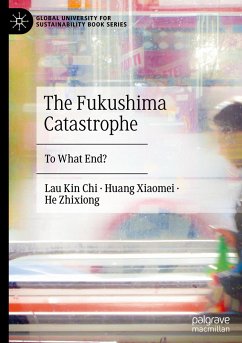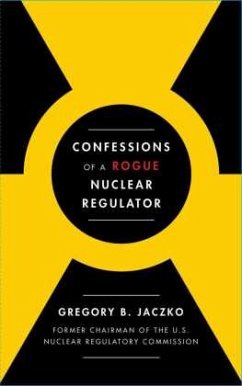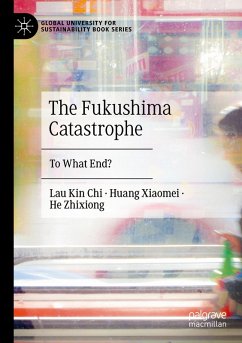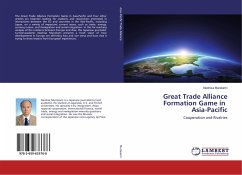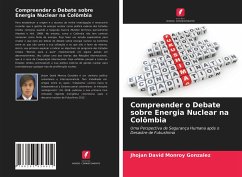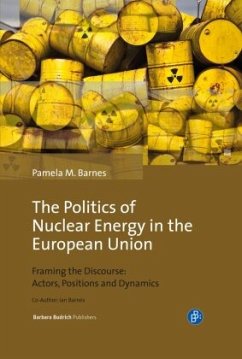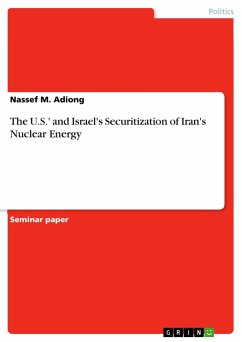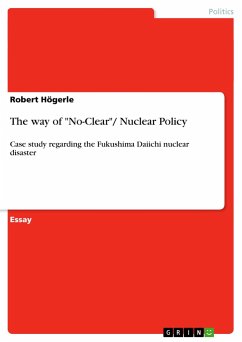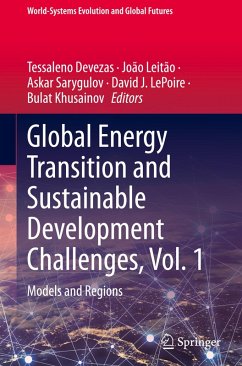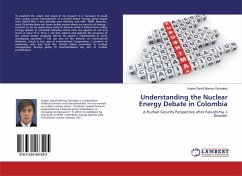
Understanding the Nuclear Energy Debate in Colombia
A Human Security Perspective after Fukushima´s Disaster
Versandkostenfrei!
Versandfertig in 6-10 Tagen
27,99 €
inkl. MwSt.

PAYBACK Punkte
14 °P sammeln!
To establish the origin and scope of my research it is necessary to recall that nuclear power management as a United States' foreign policy began once World War II was partially over (Hewlett and Holl, 1989). However, since Colombia does not have nuclear power plants as a source of energy, I pretend to do an exploratory study to disclose what is behind the nuclear energy debate in Colombia between those who are against its use and those in favor of it. Thus, I will first explore and indicate the purposes of the United States' program "Atoms for peace1" implemented in some developing countries....
To establish the origin and scope of my research it is necessary to recall that nuclear power management as a United States' foreign policy began once World War II was partially over (Hewlett and Holl, 1989). However, since Colombia does not have nuclear power plants as a source of energy, I pretend to do an exploratory study to disclose what is behind the nuclear energy debate in Colombia between those who are against its use and those in favor of it. Thus, I will first explore and indicate the purposes of the United States' program "Atoms for peace1" implemented in some developing countries. I will use one of the theories of International Relations, which is the case of International Cooperation. I pretend to emphasize why and how the United States promoted its nuclear management foreign policy to counterbalance any sort of nuclear proliferation.



